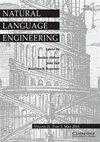用词汇增强、注意正则化和情感诱导改进基于方面的神经情感分类
IF 1.9
3区 计算机科学
Q3 COMPUTER SCIENCE, ARTIFICIAL INTELLIGENCE
引用次数: 0
摘要
从应用的角度来看,深度神经网络作为一种端到端的方法缺乏稳健性,因为在不重新训练模型的情况下很难解决明显的问题,例如,当一个模型在看到“可怕”一词时总是预测积极的时候,使得网络可以忽略输入序列中的一些关键位置。为了解决这些问题,我们在2019年提出了一个词汇增强注意力LSTM模型,名为ATLX。在本文中,我们描述了ATLX模型的扩展实验和分析。并且,我们还试图通过结合基于向量的情感域自适应方法来进一步改进基于方面的情感分析系统。本文章由计算机程序翻译,如有差异,请以英文原文为准。
Improving aspect-based neural sentiment classification with lexicon enhancement, attention regularization and sentiment induction
Deep neural networks as an end-to-end approach lack robustness from an application point of view, as it is very difficult to fix an obvious problem without retraining the model, for example, when a model consistently predicts positive when seeing the word “terrible.” Meanwhile, it is less stressed that the commonly used attention mechanism is likely to “over-fit” by being overly sparse, so that some key positions in the input sequence could be overlooked by the network. To address these problems, we proposed a lexicon-enhanced attention LSTM model in 2019, named ATLX. In this paper, we describe extended experiments and analysis of the ATLX model. And, we also try to further improve the aspect-based sentiment analysis system by combining a vector-based sentiment domain adaptation method.
求助全文
通过发布文献求助,成功后即可免费获取论文全文。
去求助
来源期刊

Natural Language Engineering
COMPUTER SCIENCE, ARTIFICIAL INTELLIGENCE-
CiteScore
5.90
自引率
12.00%
发文量
60
审稿时长
>12 weeks
期刊介绍:
Natural Language Engineering meets the needs of professionals and researchers working in all areas of computerised language processing, whether from the perspective of theoretical or descriptive linguistics, lexicology, computer science or engineering. Its aim is to bridge the gap between traditional computational linguistics research and the implementation of practical applications with potential real-world use. As well as publishing research articles on a broad range of topics - from text analysis, machine translation, information retrieval and speech analysis and generation to integrated systems and multi modal interfaces - it also publishes special issues on specific areas and technologies within these topics, an industry watch column and book reviews.
 求助内容:
求助内容: 应助结果提醒方式:
应助结果提醒方式:


